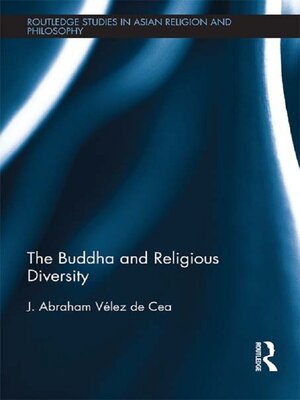The Buddha and Religious Diversity
ebook ∣ Routledge Studies in Asian Religion and Philosophy
By J. Abraham Velez de Cea

Sign up to save your library
With an OverDrive account, you can save your favorite libraries for at-a-glance information about availability. Find out more about OverDrive accounts.
Find this title in Libby, the library reading app by OverDrive.



Search for a digital library with this title
Title found at these libraries:
| Library Name | Distance |
|---|---|
| Loading... |
Providing a rigorous analysis of Buddhist ways of understanding religious diversity, this book develops a new foundation for cross-cultural understanding of religious diversity in our time.
Examining the complexity and uniqueness of Buddha's approach to religious pluralism using four main categories – namely exclusivism, inclusivism, pluralistic-inclusivism and pluralism – the book proposes a cross-cultural and interreligious interpretation of each category, thus avoiding the accusation of intellectual colonialism. The key argument is that, unlike the Buddha, most Buddhist traditions today, including Theravāda Buddhism and even the Dalai Lama, consider liberation and the highest stages of spiritual development exclusive to Buddhism. The book suggests that the Buddha rejects many doctrines and practices found in other traditions, and that, for him, there are nonnegotiable ethical and doctrinal standards that correspond to the Dharma. This argument is controversial and likely to ignite a debate among Buddhists from different traditions, especially between conservative and progressive Buddhists.
The book fruitfully contributes to the literature on inter-religious dialogue, and is of use to students and scholars of Asian Studies, World Religion and Eastern Philosophy.







